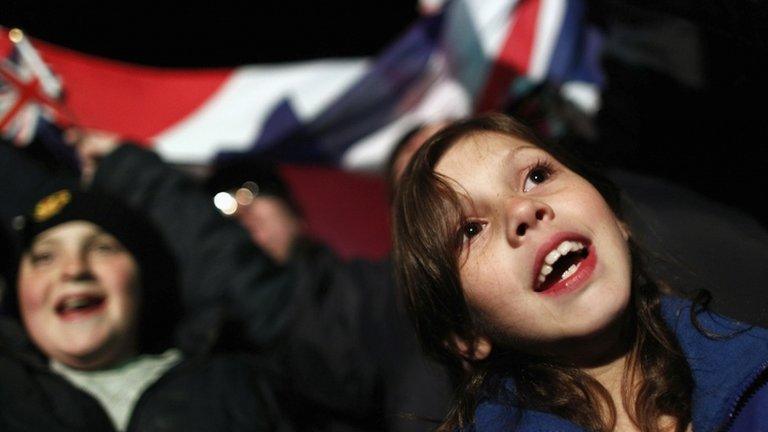Britain to boost Falklands Islands defences
- Published
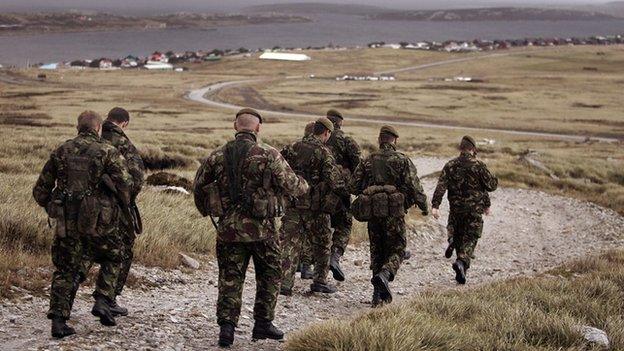
Britain will spend £280m over the next 10 years on renewing and beefing up its defences of the Falkland Islands.
Defence Secretary Michael Fallon told the BBC "any future and possible threats" to the islands had to be taken into account.
The long-running dispute over the British overseas territory has been heightened in recent years.
Mr Fallon said the government was committed to protecting the islanders' "right to remain British".
Britain is to deploy two RAF Chinook transport helicopters to help the islands' garrison to help mount a "swift and decisive response" to any "emerging incidents," Mr Fallon told MPs.
Patrol vessel
In a Commons statement, Mr Fallon said a review of the islands' defences had found they were "broadly proportionate" to the current threat level - and personnel levels would remain at about 1,200.
Michael Fallon: "We have to make sure the islands are properly protected"
But he said the government would be installing an enhanced communications system at the military headquarters at Mount Pleasant as well as putting in place plans to replace the Rapier air defence missiles when they go out of service at the end of the decade.
And he announced a new primary school and better accommodation for UK personnel station on the islands.
He also confirmed the government's commitment to maintaining a Falkland Islands patrol vessel - currently HMS Clyde - while investing £180m over the next 10 years upgrading the infrastructure including harbour facilities and fuel infrastructure.
He added: "The review we have undertaken confirms our commitment to the Falkland Islands. We will continue to defend the right of the islanders to determine their future and defend their way of life against whatever threats may arise.
"This review ensures we will continue to have the right mix of people, equipment and infrastructure to deliver that commitment in the years ahead."
He added: "I know the House will want to join me in paying tribute to our brave men and women, military and civilian, who leave behind their families and friends for months or years at a time in order to ensure the rights of the Falkland Islanders."

Falklands Islands dispute
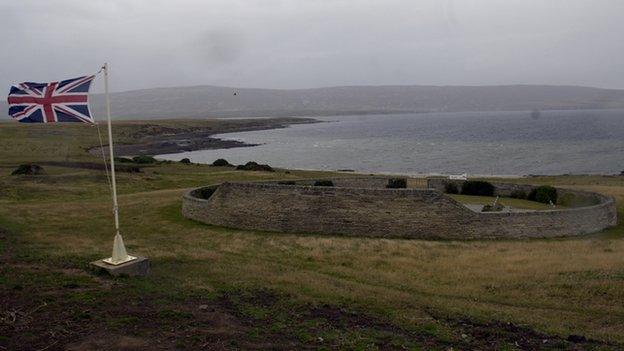
The Falkland Islands are an isolated and sparsely populated British overseas territory in the south-west Atlantic Ocean
They remain the subject of a sovereignty dispute between Britain and Argentina, who waged a brief but bitter war over the territory in 1982
Argentine forces landed on the Falklands on 2 April 1982 to stake a territorial claim, but by 14 June they had been ejected by a British military task force
The fighting cost the lives of 655 Argentine and 255 British servicemen
Argentina says it has a right to the islands, which it calls the Malvinas, because it inherited them from the Spanish crown in the early 1800s
It has also based its claim on the islands' proximity to the South American mainland
Britain rests its case on its long-term administration of the Falklands and on the principle of self-determination for the islanders, who are almost all of British descent.

It comes amid reports in the Sun newspaper, external that Russia is planning to lease 12 long-range bombers to the government in Buenos Aires, raising fears they could be used to support a renewed attack.
Argentina lays claim to the islands, which it calls the Malvinas, but Mr Fallon said the claim had "no basis in international law" and should be withdrawn.
Asked about the reports of an arms deal with Russia, Mr Fallon told BBC Radio 4's Today programme they had "not been confirmed".
But he said the threat from Argentina remained and said the government's job was to "protect the islands and particularly the right of the islanders to remain British".
In 2013, Falkland Islanders took part in a referendum, voting by 1,513 to three to remain a British overseas territory.
- Published24 March 2015
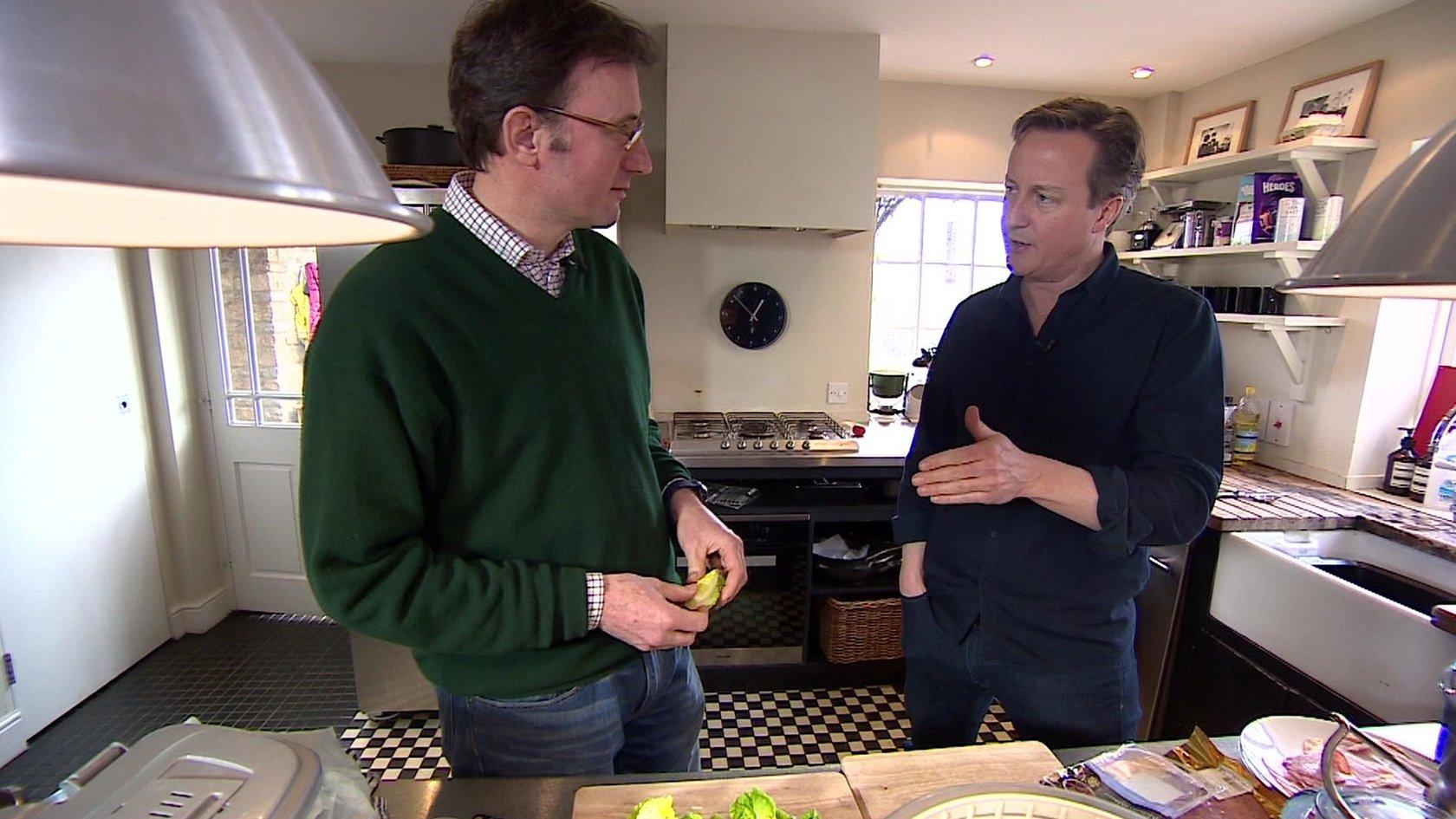
- Published21 November 2014
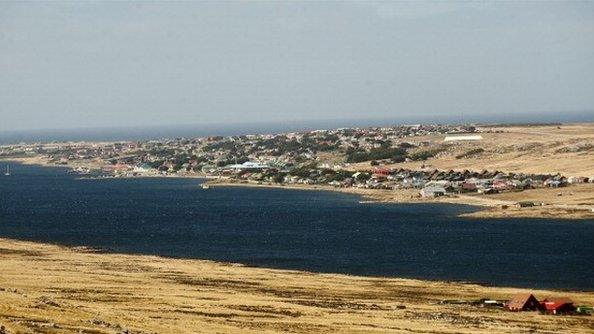
- Published12 April 2014
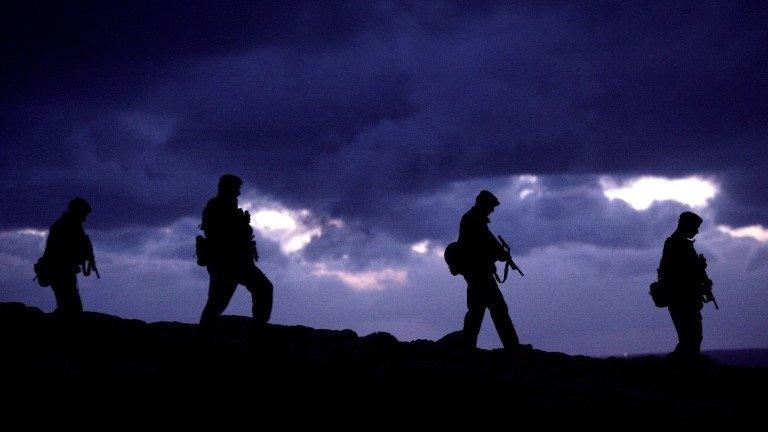
- Published7 September 2023
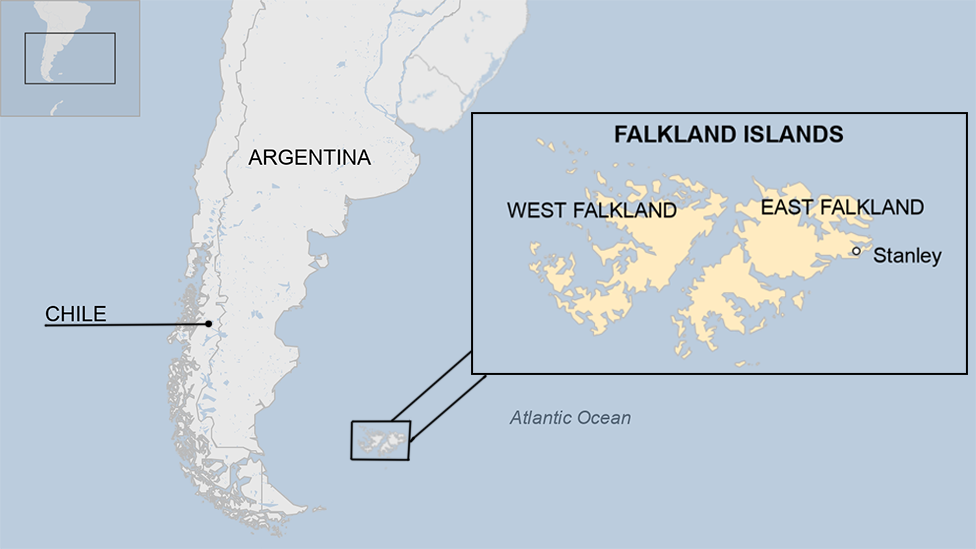
- Published12 March 2013
